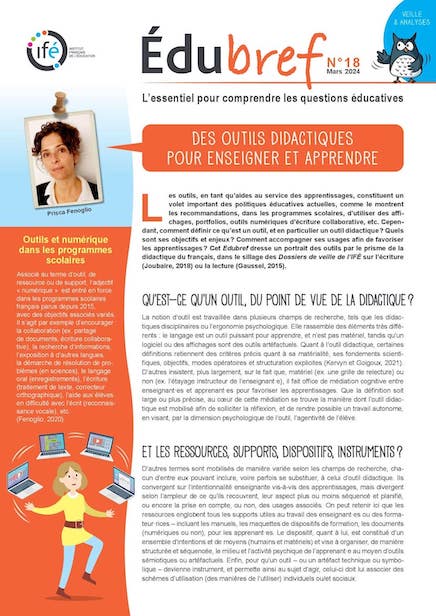| à propos de la revue | sommaires des autres numéros |
British Journal of Educational Psychology (BJEP)
Référence : Vol. 92, n°3, septembre 2022
- Long-term labour market and economic consequences of school exclusions in England: Evidence from two counterfactual approaches, Joan E. Madia, Ingrid Obsuth, Ian Thompson, Harry Daniels, Aja L. Murray
- Differential return on investment: Academic growth in mathematics and reading based on initial performance, Karen E. Rambo-Hernandez, Matthew C. Makel, Scott J. Peters, Cristina Worley
- Secondary school students’ perception of the online teaching experience during COVID-19: The impact on mental wellbeing and specific learning difficulties, Thomas Walters, Nicola J. Simkiss, Robert J. Snowden, Nicola S. Gray
- The relation between early self-regulation and classroom context: The role of adult presence, the task’s source of initiation, and social context, Antonia Zachariou, David Whitebread
- The aetiology of educational attainment: A nuclear twin family study into the genetic and environmental influences on school leaving certificates, Eike Friederike Eifler, Rainer Riemann
- Social and emotional learning in primary schools: A review of the current state of evidence, Michael Wigelsworth, Lily Verity, Carla Mason, Pamela Qualter, Neil Humphrey
- Peer likeability and victimization in young adolescents: Moderating effects of descriptive and status group norms for aggression and prosocial behaviour and network density, David Aguilar-Pardo, Belén Martínez-Fernández, Fernando Colmenares, Javier Martín-Babarro
- A multidimensional examination of math anxiety and engagement on math achievement, Michaela Quintero, Leslie Hasty, Tianyu Li, Seowon Song, Zhe Wang
- “I can teach what’s in the book”: Understanding the why and how behind teachers’ implementation of a social-emotional learning (SEL) focused curriculum in rural Malawi, Jeongmin Lee, Stephanie Simmons Zuilkowski
- Differences in students’ scholastic well-being induced by familial and scholastic context, Ramona Obermeier, Juliane Schlesier, Michaela Gläser-Zikuda
- Primary-secondary school transition under Covid-19: Exploring the perceptions and experiences of children, parents/guardians, and teachers, Charlotte Louise Bagnall, Yvonne Skipper, Claire Louise Fox
- How Students’ Big Five personality traits manifest in perceived social loafing behavior, Dalia M. Sherif
- Relations between prior school performance and later test anxiety during the transition to secondary school, Isabelle Plante, Véronique Lecours, Raphaël Lapointe, Kathryn Everhart Chaffee, Catherine Fréchette-Simard
- No aspect of structure should be left behind in relation to student autonomous motivation, Athanasios Mouratidis, Aikaterini Michou, Sibel Telli, Ridwan Maulana, Michelle Helms-Lorenz
- Early cognitive intervention using mediated learning for preschoolers with developmental delay: A randomized controlled trial, Alice Yuen-ching Keung, Vania Fai-ling Ho, Kathy Kar-man Shum
- The identification of gifted underachievement: Validity evidence for the commonly used methods, Rahmi Luke Jackson, Jae Yup Jung
- Teachers’ views on the acceptability and implementation of the Incredible Years® Teacher Classroom Management programme in English (UK) primary schools from the STARS trial, Kate Allen, Lorraine Hansford, Rachel Hayes, Bryony Longdon, Matthew Allwood, Anna Price, Sarah Byford, Brahm Norwich, Tamsin Ford
- ‘People like me don’t do well at school’: The roles of identity compatibility and school context in explaining the socioeconomic attainment gap, Matthew J. Easterbrook, Marlon Nieuwenhuis, Kerry J. Fox, Peter R. Harris, Robin Banerjee
- Exploring the interplay between socioeconomic status and reading achievement: An expectancy-value perspective, Susanna S. S. Yeung, Ronnel B. King, Ma. Jenina N. Nalipay, Yuyang Cai
- Resilience, science, technology, engineering, and mathematics (STEM), and anger: A linguistic inquiry into the psychological processes associated with resilience in secondary school STEM learning, Sophie S. Hall, Ross Morrison McGill, Steven Puttick, John Maltby
Informations complémentaires :
https://bpspsychub.onlinelibrary.wiley.com/.../current
mot(s) clé(s) : psychologie de l'éducation, recherche en éducation
catégorie(s) : théorie de l'éducation














